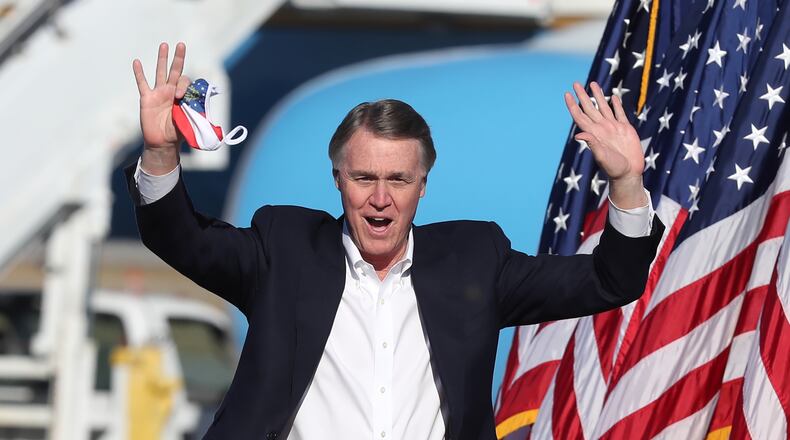State of Georgia lawyers are arguing in federal court that a lawsuit GOP gubernatorial hopeful David Perdue filed against a fund supporting Gov. Brian Kemp’s reelection aims to put the incumbent at a fundraising disadvantage.
Perdue wants the courts to throw out a state law passed in 2021 that gives Kemp and a few select legislative leaders the right to create so-called “leadership committees” that can raise unlimited contributions — including during legislative sessions.
Perdue and other candidates — and most state lawmakers — aren’t allowed to avail themselves of the committees, which provide a way for the few who can to circumvent limits on how much individuals, companies and political groups can give to campaigns.
Under current law, the campaigns of state officials such as Kemp and lawmakers can’t legally raise money while the General Assembly meets in session, which this year won’t end until about two months before the May primaries. However, Kemp’s leadership committee can.
If the court throws out the committee law and Kemp has to follow the same rules as other state officials and most lawmakers, state lawyers argue, he would be put at a disadvantage. That’s because Perdue, a former U.S. senator supported by former President Donald Trump, and other challengers can legally raise money during the session.
State lawyers, in their response to Perdue’s lawsuit, said, “his litigation strategy reflects a sandbagging effort to tilt the playing field in his favor.”
“Perdue’s alleged competitive disadvantage as a primary challenger of an incumbent ignores the fact that he was a U.S. Senator who recently appeared on two ballots before every Georgia voter, has the substantial backing of Donald Trump, and has significant personal wealth on which he can draw to fund his campaign while his suit is being adjudicated,” the state’s response to the lawsuit says.
Many of the donors to the leadership committees are lobbyists, businesses and special interests with interest in legislation and state funding.
There is a big difference in what Kemp’s committee can raise and what individual candidates for office can collect.
Statewide candidates, such as those running for governor, are currently allowed to raise $7,600 from individual donors for the primary and again for the general election, plus $4,500 per runoff.
Those limits don’t apply to leadership committees that only Kemp, the eventual Democratic nominee for governor and a few legislative leaders can create. So, for instance, a company or business association seeking a tax break from the General Assembly could give $100,000 or more to such funds and do it while lawmakers are considering the tax break or while the governor is deciding whether to sign it into law.
The committee can also coordinate its efforts with Kemp’s campaign, something regular political action committees and other funds are not allowed to do.
Earlier this week Kemp’s campaign filed a state ethics complaint against Perdue’s camp over a so-called “independent committee” that was raising money for the challenger. The complaint argued that the pro-Perdue fund broke the law by coordinating its effort with the challenger’s campaign.
About the Author
Keep Reading
The Latest
Featured




